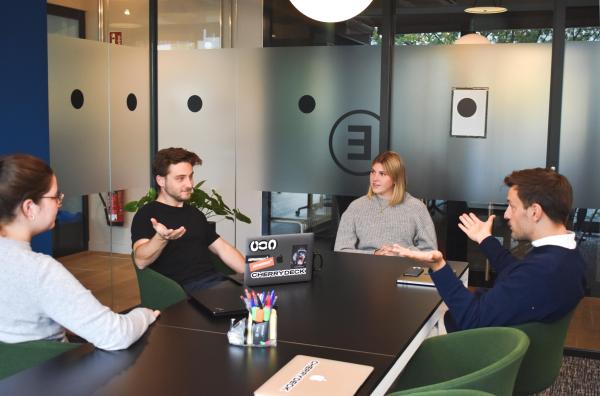What is the Role of Technology in Dispute Resolution?
Many companies will, at one time or another, find themselves embroiled in an employment dispute. While this is almost inevitable, allowing the dispute to escalate into legal action is not.
In the UK, employment dispute solicitors will almost always recommend seeking dispute resolution rather than resorting to legal action, which can be costly and harmful to a company’s reputation and extremely stressful for the employee.
In this article, we’re looking at the role of technology in dispute resolution in the UK.
What is dispute resolution?
When a dispute occurs, for example between an employer and an employee, over pay, working hours, a disciplinary action or an altercation with a colleague, it is usually in the best interests of both parties to come to an amicable resolution. Dispute resolution is the process of reaching that amicable conclusion. It is often conducted by a third party who will mediate between the employer and employee to avoid the case being taken to court.
What is the role of technology in dispute resolution?
Online Dispute Resolution
Online Dispute Resolution, or ODR, uses artificial intelligence to handle complaints on e-commerce and e-payment platforms, and this technology is being tweaked to allow it to handle other types of dispute. As AI becomes ever more sophisticated, ODR technology will almost certainly be able to save businesses a huge amount of time and money which would otherwise be dedicated to resolution cases.
ODR is very much the younger brother of ADR (Alternative Dispute Resolution) which was introduced to the UK in 2015. As the name suggests, ADR presents alternative methods of resolving disputes other than expensive and lengthy legal action which was often the go-to in times gone by. While some ADR methods were, in the past, human-based, like face-to-face mediation, these are now quickly being replaced by more efficient digital methods.
Smart Contracts
Gone are the days when a contract would comprise of a hefty tome which needed to be stored physically in case a dispute occurred. Smart contracts are created with software which is able to directly embed contractual clauses into the very fibre of the contract.
When certain predefined events occur, the software activates and executes itself in order to take action and begin the process of finding a resolution. Although it may sound a little science fiction, this technology is already in use in a number of companies across the globe. We will almost certainly see Smart Contracts become the norm in the not-too-distant future.
Video Tools
During the pandemic, a great number of employees in the UK became accustomed to attending meetings and conversations by video call - and the legal profession was no different. Video technology can play a number of roles within dispute resolution, including:
- Mediation by video call by a third party
- Court sittings by video link
- Witness interviews by video link
- Meetings by video link
In a lot of cases, video meetings for dispute resolution are considered to be extremely useful as things tend to get a little less emotional when the parties are not physically in the same room together. In addition, video can help to keep costs down as many professionals, including mediators and solicitors, charge by the hour.
Horizon Scanning
A term normally used by agencies in charge of threats to national security, horizon scanning uses AI and machine learning to create programs which calculate the likelihood of an event occurring and the action to be taken at the time of the occurrence. It's thought that this technology will not only make resolution more efficient (and therefore cheaper), but may actually prevent a dispute from happening in the first place.
Trusting the Tech
There’s no doubt that the technology examined in this article will be extremely useful in cutting time and costs when a dispute occurs. However, many may be understandably nervous at the prospect of trusting the tech to handle what can often be a sensitive and complex process.
The answer will almost certainly lie in the creation of a hybrid process where technology and humans work in parallel to resolve the issue as quickly and as compassionately as possible.
Tech’s terrific but it’s good to talk
Whether we like it or not, technology is now a huge part of our lives and has a hand in everything that we do - from working, to shopping, to even the way in which we socialise. It should then come as no surprise that technology should be used to assist with a process which is traditionally complicated, time-consuming and, at times, eye-wateringly expensive.
Having said that, any type of dispute resolution should almost certainly begin with a face-to-face conversation - even in 2023. While technology certainly has its role to play, streamlining the process, many a disagreement or misunderstanding has been ironed out with a humble chat.

